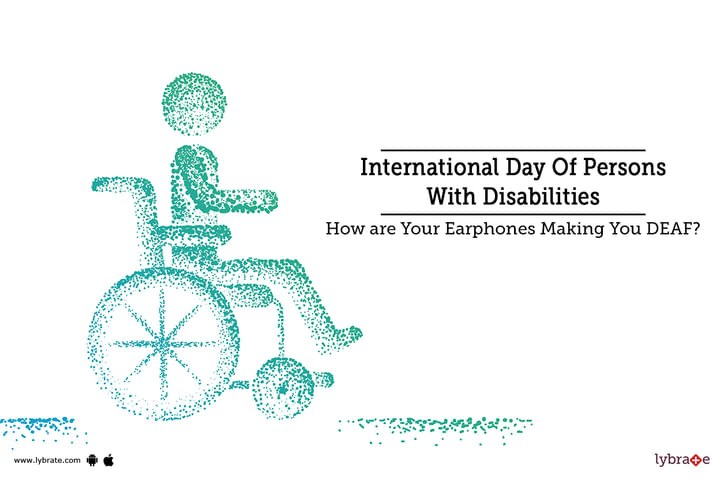How are Your Earphones Making You DEAF?
Did you know your earphones are making you deaf? Here's how.
Fact: Roughly 1.1 billion people worldwide within the age group of 12-35 have been found to be at an increased risk of developing hearing problems.
Listening to loud music on handheld devices using earphones has become a common trend among youngsters these days. You might find it very relaxing to plug in your earphones and escape into your own world of music, but you need to know that this can cause serious damage to your ears. The worst part: you won't realise your ears are being damaged until it's too late.
So, exactly how is loud music damaging your ears?
Continuous exposure to loud music from earphones or other sources results in a medical condition known as Noise-Induced Hearing Loss (NIHL), which can be associated with irreversible damage to the ears resulting in deafness.
When you hear loud music for a considerable amount of time every day it affects your hair cells (nerve cells responsible for sending sound signals to the brain) negatively, so that their ability to respond to sound decreases. If this keeps on happening for many months, eventually the hair cells are damaged beyond repair. These cells cannot be regenerated, making you permanently deaf.
How loud is too loud?
If your ears are exposed to sounds at 95, 100, 105, 110 and 115 dB (decibel, the unit used for measuring sound) for 4 hours, 2 hours, 1 hour, 30 minutes and 15 minutes each day respectively, your ears are at risk of getting severely damaged. Also, playing music at 120 dB or above can damage your ears instantly. You can have a realistic idea about the relation between decibels and sounds you commonly hear by referring to this list:
- 30 dB: soft whisper
- 75 dB: busy traffic
- 90 dB: noise of a motorcycle at 25 feet
- 100 dB: noise of a farm tractor
- 140 dB: jet plane taking off
Moreover, if you experience the following symptoms regularly, there's a high chance that you need to get your ears treated soon:
- A ringing sound in your ears when you are at a quiet place, which vanishes after a few minutes
- You need to raise the volume of TV or music to the fullest to hear it properly
- You have difficulty in hearing people talking at a distance of just 3 feet
How can you prevent the risk of hearing impairment?
When you're using earphones, keep the volume low. Also, using in-ear headsets or noise reduction/cancellation earphones also helps as it lets you hear the music distinctly at lower volumes by cutting out background noise.
CHECK: You need to lower the volume of your music if the person sitting or standing beside you can hear the sound coming out of your earphones.
'Consult'.
Related Tip: Why Do You Get an EAR Discharge?



+1.svg)
